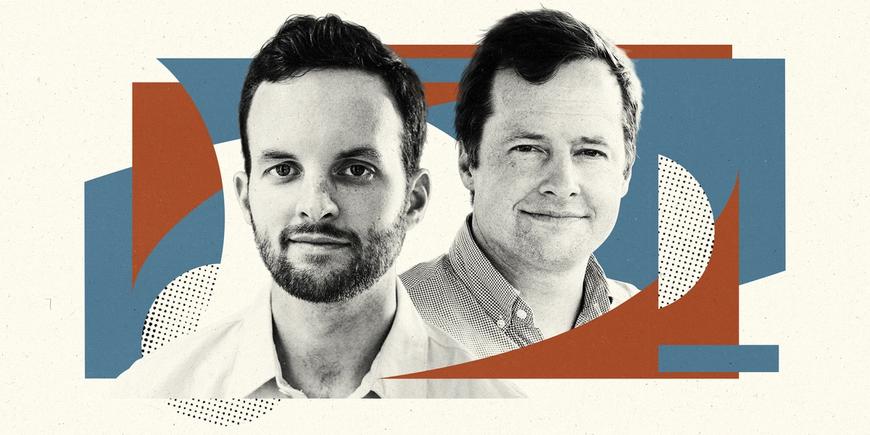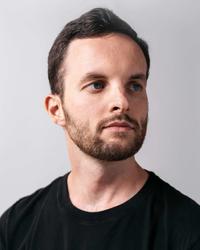Cohere Health COO Duncan Reece: 'Healthcare is too complex to tackle things in a siloed way'
How a fast-growing healthcare startup is leveraging tech and collaborative partnership to help patients, doctors, and health plans work better together

For a patient to receive many treatments and tests, a doctor first needs to receive approval from a health insurance plan before services can begin. Traditionally, the 'prior authorization process' involves wading through red tape and old school systems, which can delay much-needed treatments.
Founded in 2019, Cohere Health aims to streamline this process and offer a different kind of experience for patients, medical providers, and health plans to ultimately improve the quality and speed of care that patients receive. In the past year, Cohere has grown to more than 400 people and secured a $36 million Series B funding bringing their overall total raise to $56 million.
By combining artificial intelligence and machine learning with evidence-based clinical policy, Cohere's utilization management collaboration platform supports physicians and health plans to make better care decisions for patients. "Collaboration between these entities is important, it just needs to be less burdensome." says Duncan, COO and Cofounder.
I spoke to Duncan about his entrepreneurial journey, landing early customers and the challenges that come with trying to change the healthcare system.
Sam Toole: To kick things off, I would love to hear more about your background. What initially drew you to the world of healthcare?
Duncan Reece: I have a lot of respect for people who know what they want to be early in their career. But I wasn't one of those people. I got out of college and went into financial services because that's what my friends were doing. The thing that changed my trajectory was when I worked at an investment management company that had an explicit expertise in healthcare investing. I never thought I was destined to be a good investor but I got a lot of inspiration from the companies in which we invested—these CFOs and CEOs of companies were making the world better, innovating in science, services, and technology. I realized I was much more passionate about being on the other side of the table.
The second influence was my parents. My mom taught nursing at UMass Lowell for her entire career and my dad was a consultant to hospital systems across the country. They were passionate about interacting with physicians, nurses and patients. I didn't figure out that healthcare was the place for me until I was 28. Then I dove into it. I was fortunate to go to business school at Dartmouth, where there was a ton of cool research on unwarranted variation and the perverse incentives that exist, and where concepts like Shared Decision Making first received acclaim. I was fascinated about the opportunity to eliminate waste and thought, "This is where I want to go."
Fortunately, after school I landed at organizations that were trying to reshape the healthcare landscape. I learned a lot at Health Dialog, trying to help patients navigate difficult decisions with their doctors, and then at Iora Health, redesigning primary care nation-wide by focusing on relationship-based care. Afterward, at Mindstrong, I worked to support patients with serious mental illness using technology as a mechanism to do something different. I'm lucky to have been influenced by a lot of smart mentors who took me under their wing.
With all these experiences, was there a moment when you realized "I'm going to go start a business now"? Or was it a lot of looking at different opportunities?
When I was at Health Dialog, beginning in 2008, the economy fell apart and there was a ramping up of the startup scene in Boston–and nationwide. I thought I wanted to be one of these legendary founders, but my dad said, "Duncan, you don't want to do that. It's not who you are. Maybe you should be a consultant." And I sort of took offense to that. It's interesting, I'm entrepreneurial in my approach but my dad was right in that I am not the kind of disruptive founder who puts themselves in the spotlight to take on the world. In a lot of ways, I like to make stuff happen behind the scenes. So there wasn't a “single” moment but there were moments at Health Dialog and Iora Health when I had ideas that I could do something to put patients first by simplifying the complex environment in which physicians and other care givers are forced to work.
For people who aren't familiar with Cohere Health, what's the core problem you're solving and the current product offering?
The problem Cohere is solving is that the health system isn't set up for patients to receive the diagnosis and treatment plan that is right for them. Our belief is that most of the actors in the healthcare system – doctors, patients and health plans – are trying to do the right thing but they're not communicating effectively. Interestingly, prior authorization actually started as a tool to improve communication between doctors and health plans to approve and pay claims more quickly for essential care. However, this process was horribly implemented and built on the wrong technology stack. So we thought, 'Let's fix the prior authorization process so it's clinically useful, faster, more transparent and interoperable—and make it actually clinically and administratively helpful for the physician and the patient' And that's good for the health plan, the doctor and the patient.
I'm interested to hear about the early days. How did you start working with health insurers and doctors to accomplish this mission? How did you find product market-fit? Doctors often don't have enough time and health plans are traditionally large and difficult organizations to operate within.
One thing about working in healthcare is that if you really want to change healthcare, you have to figure out ways to change it from within. Sometimes, you can break in and be disruptive, but in my experience, this is often difficult given the regulatory, reimbursement, and interoperability challenges inherent to the sector.
Early on, we believed that transformation had to start from within the health plan for many reasons. The visibility health plans have into patient touch points via their claims system to “see” total cost of care doesn't always exist for a hospital or a provider group. We also noticed that many fail points that exist in prior authorization are a function of funky things that happen inside of a health plan’s systems – old technology, manual processes, and vendor relationships. If we could solve for these challenges, we believed we could solve problems at scale for millions of patients. That's the big bet we made. Then we focused on spending time with innovative organizations that wanted to solve this problem. One of our early customers was Humana. We spent a lot of time getting into the weeds of clinical workflow and how it intersected with health insurance processes, which helped us see the challenges and figure out what to prioritize in Cohere’s platform.
As you look back, what helped you get across the line with Humana early on?
A lot of credit goes to the innovative people inside of Humana, who prioritized the Cohere partnership as an important strategic initiative. It's not an easy thing to prioritize transforming Utilization Management, particularly three-plus years ago. Utilization Management is a cross-functional set of infrastructure, tools, people, and technology that has a high risk for the organization if mistakes are made. I think what we did well was being humble and curious. We had the license to think about the problem differently and we spent a lot of time building relationships: with physicians, with Humana stakeholders, and with patients. To this day, our ability to listen has allowed us to continue to build credibility and trust to innovate, and we are fortunate to have such collaborative partners throughout our company’s growth. Healthcare is too complex to tackle things in a siloed way without collaborative partners.
Why has Boston been the right place for you to build a business?
The company was founded in 2019. In March 2020, Covid-19 happened and we went remote with just one in-person all-hands meeting under our belts. In many ways, the company was built in Boston, but it hasn't been built in Boston. Right now, we have more employees outside Boston than we do in the city. That being said, the access to folks who think about public health issues and who excel in care delivery is wonderful in Boston. The startup and venture worlds are great here, but I'm looking forward to a post-Covid 19 world where we can connect with Boston in a way that we haven't been able to for the last two years. Particularly now—there's an interesting innovation community around healthcare in Boston that didn't exist several years ago.
